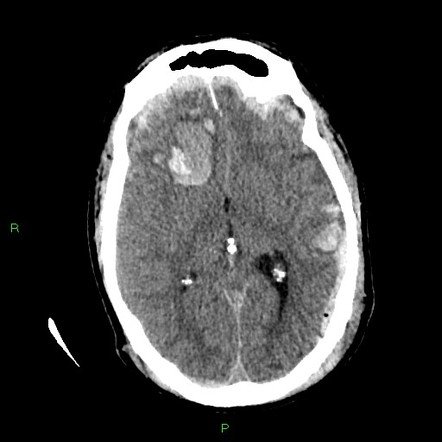Traumatic Brain Injury (TBI)
Content of This Page
1- Introduction
2- Causes
3- Symptoms
4- Stages of The Disease
5- Treatment
6- What Should You Avoid
Introduction
Traumatic Brain Injury (TBI) is a type of brain injury caused by a sudden, external force, such as a blow or jolt to the head. It can lead to a range of physical, cognitive, and emotional impairments, depending on the severity and location of the injury.

Causes
- Falls: Slips, trips, or falls from height.
- Motor Vehicle Accidents: Car crashes or collisions.
- Sports Injuries: Contact sports or activities with high impact.
- Assaults: Physical violence or abuse.
- Blast Injuries: Explosions or blasts, especially in military contexts.
- Workplace Accidents: Injuries from accidents on the job.
Symptoms
- Headache: Persistent or severe headaches.
- Confusion: Disorientation or difficulty concentrating.
- Memory Problems: Difficulty remembering events or information.
- Dizziness: Feeling lightheaded or unsteady.
- Nausea or Vomiting: Feeling sick to the stomach or vomiting.
- Loss of Consciousness: Brief or prolonged loss of consciousness.
- Changes in Mood: Irritability, mood swings, or emotional instability.
- Sensory Issues: Blurred vision, ringing in the ears, or sensitivity to light and sound.
- Coordination Problems: Difficulty with balance or motor skills.
- Fatigue: Persistent tiredness or lack of energy.

Stages of The Disease
Mild TBI (Concussion):
- Symptoms: Brief loss of consciousness or confusion, headache, dizziness, and temporary memory problems.
- Description: Typically resolves with rest and minimal intervention, but symptoms may persist in some cases.
Moderate TBI:
- Symptoms: Extended loss of consciousness, persistent confusion, and more severe cognitive and physical impairments.
- Description: Requires medical evaluation and treatment; recovery may take weeks to months, and some long-term effects may persist.
Severe TBI:
- Symptoms: Prolonged loss of consciousness or coma, significant cognitive and physical impairments, and possible long-term or permanent disability.
- Description: Often involves intensive medical care, rehabilitation, and long-term management; recovery can be prolonged and may include ongoing therapy.
Chronic Stage:
- Symptoms: Ongoing issues with cognitive function, physical abilities, and emotional regulation.
- Description: Long-term consequences and potential for continued rehabilitation and support.
Treatment
Emergency Care:
- Immediate Medical Attention: Stabilizing the patient and addressing any life-threatening issues.
Medications:
- Pain Relief: To manage headaches or other pain.
- Anti-seizure Medications: To prevent or control seizures.
- Diuretics: To reduce swelling in the brain.
Surgical Interventions:
- Craniotomy: To relieve pressure from swelling or bleeding.
- Decompressive Surgery: To remove parts of the skull or repair damaged areas.
Rehabilitation:
- Physical Therapy: To improve motor skills, strength, and coordination.
- Occupational Therapy: To assist with daily living activities and improve functional independence.
- Speech Therapy: To address communication and cognitive issues.
Psychological Support:
- Counseling and Therapy: To address emotional and behavioral changes, and support mental health.
Lifestyle Adjustments:
- Rest and Recovery: Ensuring adequate rest and avoiding activities that could worsen symptoms.
- Supportive Environment: Creating a safe and supportive living environment to facilitate recovery.
Follow-Up Care:
- Regular Monitoring: Ongoing evaluations to manage long-term effects and adjust treatment as needed.
What Should You Avoid
- Strenuous Physical Activities: Such as heavy lifting or intense exercise, especially in the early stages of recovery.
- Alcohol and Drugs: Which can impair cognitive function and interact negatively with medications.
- Re-injury: Engaging in activities that pose a risk of further head injury.
- Driving or Operating Machinery: Until fully cleared by a healthcare provider.
- Ignoring Symptoms: Failing to report worsening symptoms or changes in condition to a medical professional.
- Skipping Rehabilitation: Neglecting physical, occupational, or speech therapy sessions.
- Excessive Screen Time: Reducing exposure to screens if it worsens symptoms like headaches or eye strain.